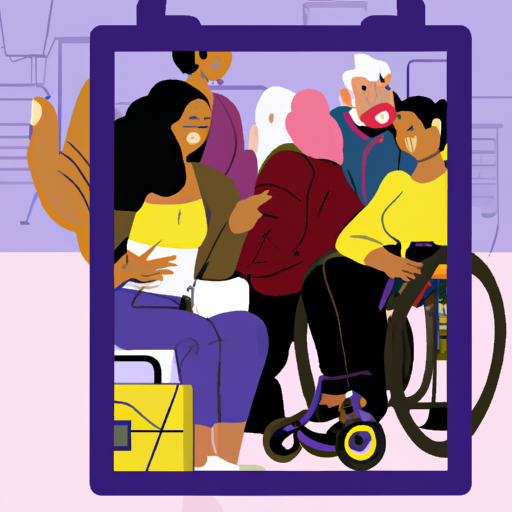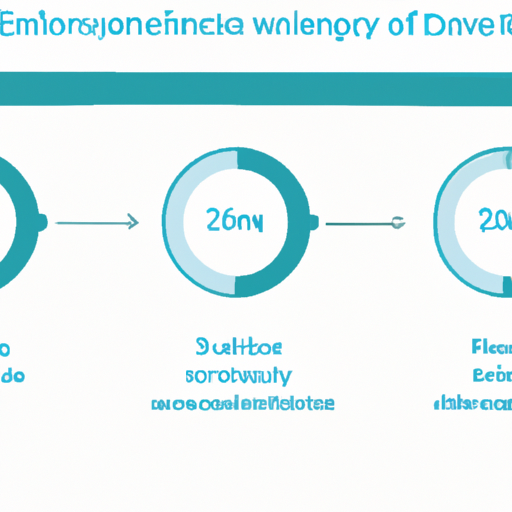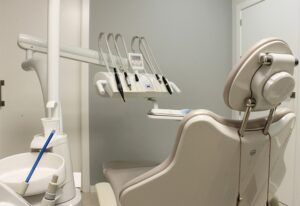In the evolving landscape of healthcare, personalized solutions are transforming specialty care. This blog post explores the profound impact of these customized approaches, focusing on how they enhance patient treatment, improve healthcare delivery, and foster beneficial relationships between healthcare providers and patients.
1. 'One Size Does Not Fit All': The Need for Personalized Solutions in Specialty Care?
In the realm of specialty care, it has become increasingly evident that a one-size-fits-all approach is no longer sufficient. Each patient is unique, with their own set of medical history, genetic makeup, and individual needs. This realization has led to a growing demand for personalized solutions in specialty care.
Personalized solutions acknowledge the complexity of healthcare and the importance of tailoring treatments to each patient's specific requirements. By taking into account a patient's individual characteristics, such as their genetic predispositions and lifestyle factors, healthcare professionals can develop targeted and more effective treatment plans. This approach is particularly crucial in specialty care, where patients often require specialized interventions and highly individualized care.
Furthermore, personalized solutions have the potential to revolutionize the way patients experience treatment. In the past, patients may have felt like mere recipients of standardized protocols, with little consideration given to their unique circumstances. However, with personalized solutions, patients become active participants in their own healthcare journey. They are empowered with knowledge about their conditions and involved in the decision-making process, leading to a more engaged and satisfied patient population.
Moreover, personalized solutions in specialty care can lead to improved patient outcomes. By tailoring treatments to each patient's needs, healthcare providers can optimize the effectiveness of interventions. This targeted approach reduces the risk of adverse events and enhances the likelihood of successful treatment outcomes. Additionally, personalized solutions can also help identify potential risk factors and enable early intervention, further improving patient prognosis.

1. An illustration of a diverse group of patients, showcasing the need for personalized healthcare solutions.
2. 'The Patient Will See You Now': How Personalized Solutions are Transforming Patient Treatment
Advancements in technology and the growing emphasis on patient-centered care have paved the way for personalized solutions to transform patient treatment in specialty care. Gone are the days when patients had to passively await their turn in the examination room. With personalized solutions, the paradigm has shifted, and it's now the patient who takes the lead.
Through the use of digital health platforms and wearable devices, patients can actively monitor their health and provide valuable data to their healthcare providers. This real-time information allows for a more accurate assessment of their condition and enables healthcare professionals to make timely and informed decisions. Patients are no longer just recipients of care; they become partners in their own treatment, actively involved in managing their health.
Personalized solutions also offer the potential for remote patient monitoring, breaking down geographical barriers and improving access to specialty care. Patients who once had to travel long distances for consultations or follow-up appointments can now receive care from the comfort of their own homes. This not only saves time and money but also reduces the burden on healthcare facilities, allowing them to focus on more critical cases.
In addition to improving access and convenience, personalized solutions enhance patient engagement and adherence to treatment plans. With tailored interventions, patients are more likely to understand the rationale behind their treatment and actively participate in their own care. This increased engagement leads to higher treatment compliance and better overall outcomes.
Moreover, personalized solutions enable healthcare providers to identify potential risks and intervene before complications arise. By continuously monitoring patients' health data, healthcare professionals can detect early warning signs and take preventive measures. This proactive approach not only improves patient outcomes but also reduces healthcare costs by avoiding hospitalizations or emergency interventions.
3. 'It's a Beautiful Day to Save Lives': Enhancing Healthcare Delivery through Personalized Solutions
In the fast-paced world of healthcare, personalized solutions have emerged as a game-changer, enhancing the delivery of care and ultimately saving lives. By tailoring treatment plans and interventions to individual patients, healthcare providers can optimize outcomes and improve patient satisfaction. Personalized solutions leverage advances in technology and data analytics to ensure that each patient receives the most appropriate and effective care for their unique needs.
One of the key benefits of personalized solutions is the ability to identify and address potential barriers to treatment success. By understanding each patient's specific circumstances, healthcare providers can customize interventions that account for factors such as socioeconomic status, cultural beliefs, and personal preferences. This holistic approach not only improves patient compliance but also reduces the risk of adverse events or treatment failures.
Furthermore, personalized solutions enable healthcare providers to leverage big data and predictive analytics to make more accurate diagnoses and treatment decisions. By analyzing vast amounts of patient data, including medical history, genetics, and lifestyle factors, providers can identify patterns and trends that may not be apparent through traditional methods. This enables them to deliver targeted and precise interventions, increasing the likelihood of positive outcomes.
Personalized solutions also contribute to the shift towards preventive care. By identifying individuals at high risk for certain diseases or conditions, healthcare providers can implement early interventions and lifestyle modifications to reduce the likelihood of disease development or progression. This proactive approach not only improves patient health but also reduces the burden on healthcare systems by minimizing the need for costly and invasive treatments.

3. An infographic showing the improved efficiency in healthcare delivery due to personalized solutions.
עבור מידע בתחום של specialty pharmaceutical companies וThe Impact of Personalized Solutions in Specialty Care מומלץ לבדוק כאן: truemedtx.com
4. 'In the Practice of Medicine, Relationships Matter': Fostering Provider-Patient Relationships Through Personalized Solutions
In the practice of medicine, building strong provider-patient relationships is paramount. Personalized solutions play a vital role in fostering these relationships by tailoring care to the unique needs and preferences of each patient. By taking the time to understand their patients on a deeper level, healthcare providers can establish trust, communication, and collaboration, leading to improved patient outcomes and satisfaction.
Personalized solutions enable healthcare providers to go beyond the surface-level understanding of their patients. By considering factors such as cultural background, socioeconomic status, and personal beliefs, providers can develop a comprehensive understanding of their patients' values and goals. This deeper understanding allows for more effective communication and shared decision-making, as providers can align treatment plans with their patients' needs and preferences.
Through personalized solutions, healthcare providers can also empower patients to take an active role in their own care. By involving patients in the decision-making process and providing them with personalized information and resources, providers can empower patients to make informed choices about their health. This collaborative approach not only improves patient engagement and satisfaction but also enhances treatment adherence and overall health outcomes.
Moreover, personalized solutions help to establish a sense of continuity and trust between providers and patients. By consistently tailoring care to individual needs, providers demonstrate their commitment to the well-being of their patients. This fosters a strong provider-patient bond, where patients feel heard, valued, and supported throughout their healthcare journey.
In conclusion, personalized solutions present a revolutionary approach in specialty care. Their profound impact is felt across various aspects of healthcare, including patient care, healthcare delivery, and provider-patient relationships. By adopting these solutions, specialty care providers can ensure more precise diagnoses, targeted treatments, and improved patient satisfaction. The future of specialty care indeed lies in the successful integration of personalized solutions.





